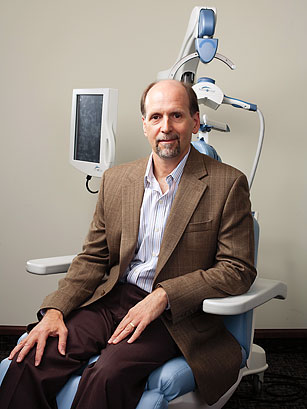
For a good portion of the 15 million Americans fighting depression, the available treatments of counseling and medication bring scant relief. The next step — electroshock, or, as it has been rebranded, "electroconvulsive" therapy — bears a gothic stigma and has frightening side effects. But research into the brain's complex wiring is yielding new therapeutic avenues. Neuronetics, a Philadelphia-based start-up, has tapped that deepening vein of knowledge to develop a therapy called transcranial magnetic stimulation (TMS). It uses a device that generates electrified magnetic impulses to stimulate the prefrontal cortex of the brain, the area that controls mood. That ultra-targeted tweak, channeled through a coil placed against the scalp, sparks a small arc of electrical activity in the brain, which in turn sets off chemical changes that elevate a patient's state of mind. Approved by the U.S. Food and Drug Administration in 2008, TMS won't cure depression, but it may be a big step toward tamping its terrible impact. "I've seen what depression and the side effects of drug treatment do to people," says CEO Bruce Shook. "That painted a very vivid picture for me of how serious and debilitating a disorder this can be." TMS doesn't require anesthesia or sedation. It's usually administered in a doctor's office in a surprisingly relaxed 40-minute procedure. The patient remains awake, free to read or watch TV. There's a tiny risk of scalp burns, headaches and seizures. Some 200 doctors and institutions have each spent $70,000 to buy treatment stations. Dr. Martha Koo, a psychiatrist in Hermosa Beach, Calif., is seeing positive responses in about 70% of her TMS patients. "I certainly think it's an excellent tool to have in the psychiatry toolbox," she says. A typical patient undergoes 20 to 30 treatments over a six-week period. Cost: $8,000. Insurance won't cover the sessions, but that could change as adoption rates and demand increase. Says Dr. Philip G. Janicak of Rush University Medical Center in Chicago: "We are in the nascent stages of TMS playing a quite crucial role in psychiatry as a whole."
—by Bob Diddlebock